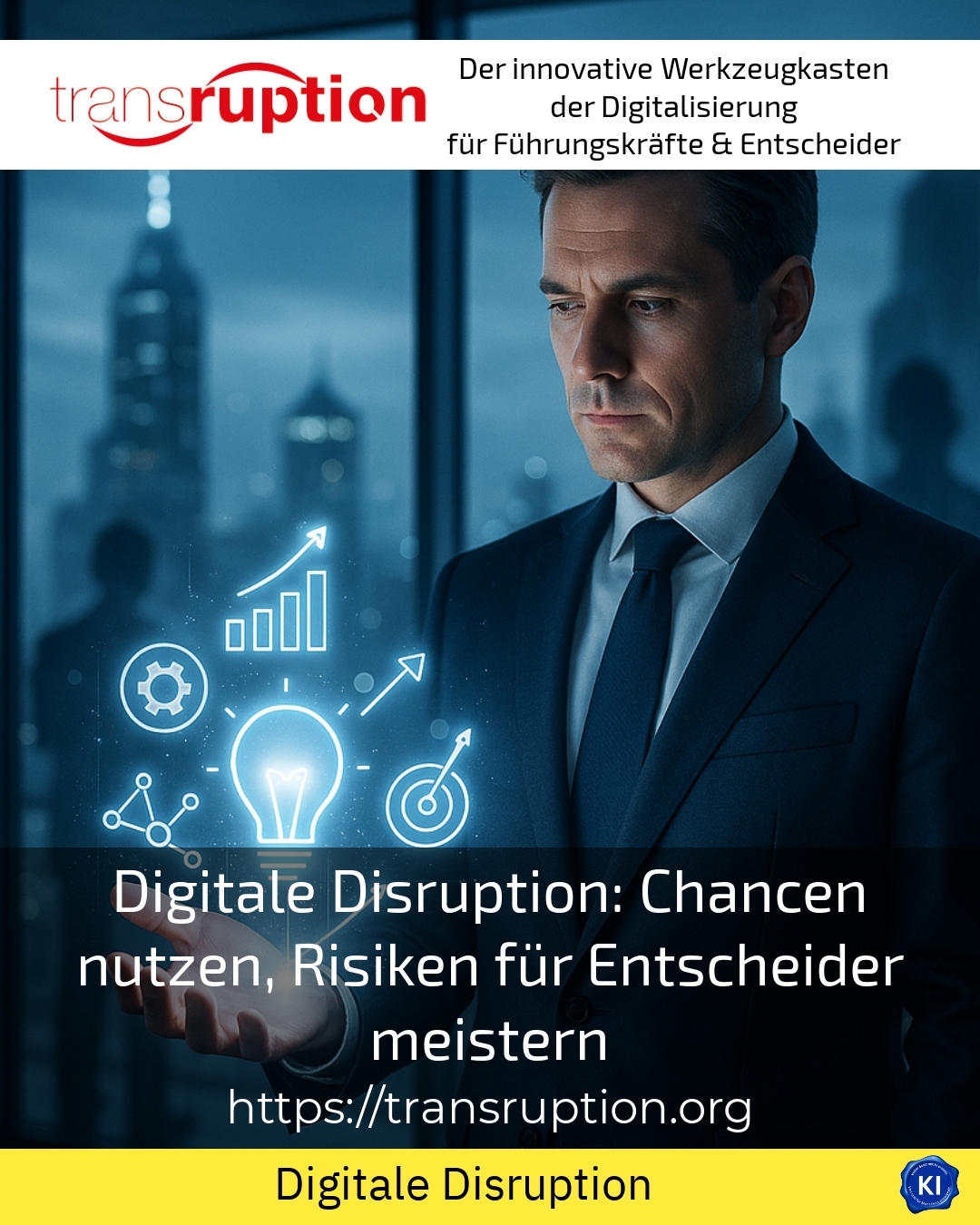The Digital disruption is fundamentally shaping the economy. It is generating radical changes in markets and business models through new technologies. Managers are faced with the challenge of not only mastering risks, but also consistently utilising opportunities. Actively managing digital change is therefore central to sustainable corporate success.
The basics of digital disruption and its significance for decision-makers
Under digital disruption is the profound transformation of existing business processes and industries through digital technologies and innovations. Examples from a wide range of industries clearly demonstrate this dynamic: online retail with platforms such as Amazon has massively changed stationary retail, as customers now experience unprecedented choice and easy accessibility. In mobility, apps such as Uber flexibly combine supply and demand, which poses new challenges for traditional taxi companies. Streaming services such as Netflix and Spotify are also fundamentally changing user behaviour in the media landscape.
These examples illustrate that companies that do not actively engage with digital disruption can lose market share. For decision-makers, this means that proactive action is becoming a must in order to avoid being left behind.
Recognising and using digital disruption as an opportunity
The Digital disruption offers a wide range of opportunities to develop new business models and innovative products. Successful companies rely on the following strategies:
- Early use of technology: The use of artificial intelligence, the Internet of Things and cloud services enables process optimisation and the development of new services.
- Create agile structures: Flexibility and the ability to react quickly to market changes increase competitiveness.
- Promote a culture of innovation: Creative ideas and their realisation are actively supported in order to further develop the core business.
For example, a logistics company has used IoT sensors to make its supply chains more transparent and efficient. A financial services provider uses AI chatbots to optimise customer service and be available around the clock. In the fashion industry, digital platforms make it possible to address customers individually and thus increase sales.
BEST PRACTICE at the customer (name hidden due to NDA contract)
An international retailer improved its customer experience by digitalising the entire value chain. A dedicated online portal was created to address individual customer needs. Within a short space of time, sales increased by over 20 per cent.
Challenges and risks for decision-makers
Despite the opportunities, digital disruption also harbours risks. Decision-makers need to consider the following aspects:
- Technological complexity: The rapid pace of digital innovation requires continuous learning and investment in expertise.
- Cultural change: Employees and managers must accept and promote new ways of working, otherwise resistance will arise.
- Self-disruption: Companies are faced with the challenge of actively scrutinising their own business models and, if necessary, radically changing them before competitors do.
In practice, many clients report that they have difficulties with internal transformation because traditional structures are entrenched. It is therefore advisable to bring in external expertise to support the change in a targeted manner.
Support through transruption coaching
One focus is on supporting projects relating to the Digital disruption. transruptions coaching supports decision-makers in developing individual strategies, weighing up risks and realising opportunities. The motto here is: not every change has to be radical, but it should be proactively organised.
For example, coaching helps with the establishment of agile methods, the development of digital skills and communication within the company. This creates impetus that facilitates change processes and ensures digital sustainability.
My analysis
The Digital disruption is not a short-term trend, but a permanent process that presents companies with demanding challenges. Successful managers recognise the opportunities by working with innovative technologies at an early stage and aligning their organisations in an agile way. At the same time, it is important to consciously manage risks such as technological complexity and cultural resistance. Targeted support from experienced coaches can provide valuable assistance. Overall, a committed approach to digital disruption ensures that companies remain fit for the future and even open up new markets.
Further links from the text above:
Digital disruption - definition, explanation and tips
Digital disruption: How to ensure success today
Digital disruption: How decision-makers are now steering successfully
Digital disruption - IT portal
Digital disruption in marketing, sales and customer service
For more information and if you have any questions, please contact Contact us or read more blog posts on the topic TRANSRUPTION here.















